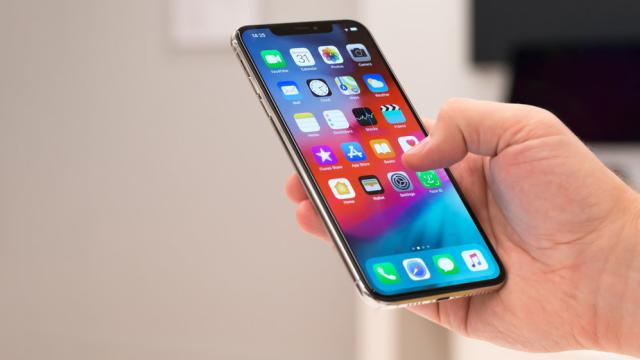We regularly call out shady apps found on the Google Play Store, but Apple’s App Store has its fair share of threats, too. The platform is teeming with iOS apps that scam unsuspecting users into costly — and in some cases, undisclosed — in-app transactions. These apps hide their scams in otherwise legit features to circumvent Apple’s vetting process, then inflate their user rating with fake reviews and downloads.
Predatory apps aren’t a recent phenomenon. In 2019, a notorious iOS heart rate monitor app reappeared on the App Store just eight months after it was banned for scamming users out of their hard-earned cash. The app claimed to use the fingerprint Touch ID scanner found on some iOS devices to track the user’s pulse. However, users were unwittingly using their fingerprints to approve an $115 transaction in the background.
At the time of the app’s return, Apps Exposed reported more than 500 other iOS apps used similar tactics to con users. Many of those apps have since been removed, but new ones appear on the App Store every day.
Unsurprisingly, many are based around adult content — especially peer-to-peer video chatting, free pornography, and casual sex. That said, many con apps aren’t based around adult content; plenty of other categories like photo/video filters, quizzes and games, health and wellness, and backgrounds or UI themes are common targets as well.
Let’s look at their ratings over time. Blue line is new positive ratings per day. This is a completely unnatural pattern here, when overlaid with their download numbers. pic.twitter.com/HMRbLz38wa
— Kosta Eleftheriou (@keleftheriou) February 6, 2021
A more recent example is Star Gazer+, as pointed out by Kosta Eleftheriou on Twitter. At the time of Eleftheriou’s Tweets, the app had over 80,000 ratings averaging 4.6 stars (at the time of writing, it now has a 4.4-star rating based on over 1,100 reviews). At first glance, it seems like this is a legit app — however, read through the reviews and you’ll find a very different story. The majority are 1 star, and almost all of them call out egregious, unexpected in-app purchases. Many users found they were signed up for a costly subscription simply for tapping an “update” button.
Despite the negative reviews and user complaints, Star Gazer+ is still available on the app store with a favourable average rating and many obviously fake 5-star reviews, along with hundreds of other scam apps. Some of these apps have managed to scam hundreds of thousands in total revenue from users in just the last year.
It’s surprising that so many con apps skirt the App Store’s strict policies, but their prevalence suggests Apple is unable — or unwilling — to deal with them properly. Sure, maybe they’re not breaking a law or infecting users with malware, but they’re still malicious. But until Apple takes this issue seriously, it’s up to the user to keep these products off their devices. Here are some tips to keep yourself safe from scam apps on the App Store:
- Read user reviews thoroughly before downloading. Yes, even if the average scores are high and it has tons of ratings. If you look hard enough and comb through the reviews, you’ll find plenty calling out these apps for being scams.
- Check outside sources. Cross-reference unfamiliar apps on user forums, Reddit, and blogs like Apps Exposed before downloading.
- Know your device’s limitations. If an app flaunts features or services that seem too good to be true then it’s probably a fake app. Don’t download it or buy anything it’s selling.
- Look out for hidden subscriptions. While many free apps offer extra paid premium features and in-app purchases, don’t subscribe to an app to use features or access content that is freely available elsewhere.
- Call-out scams if you find one. Shady developers upload new scam apps all the time, and it’s impossible to catch them all before someone gets duped. If an app unexpectedly charges you, report suspicious activity Apple and leave a review warning others that the app is a scam.
Bottom line: unfamiliar apps should be approached with caution. When in doubt, don’t put them on your device, and keep your finger away from any typical in-app purchase approval methods, too.
Update 2/11/21: Brendan updated this piece with new information about the latest iOS scams. We also changed the images.

Leave a Reply
You must be logged in to post a comment.